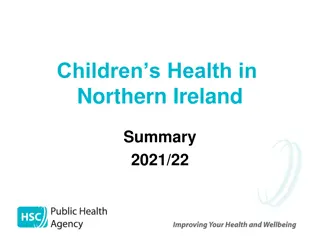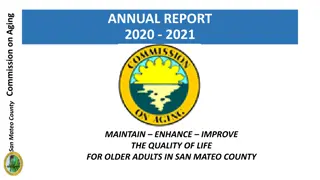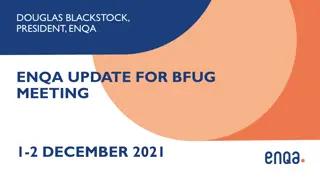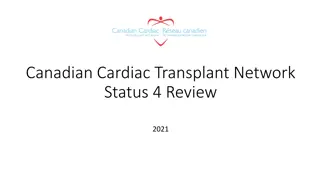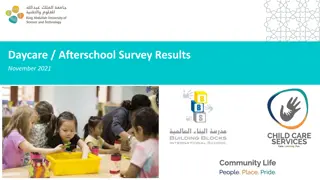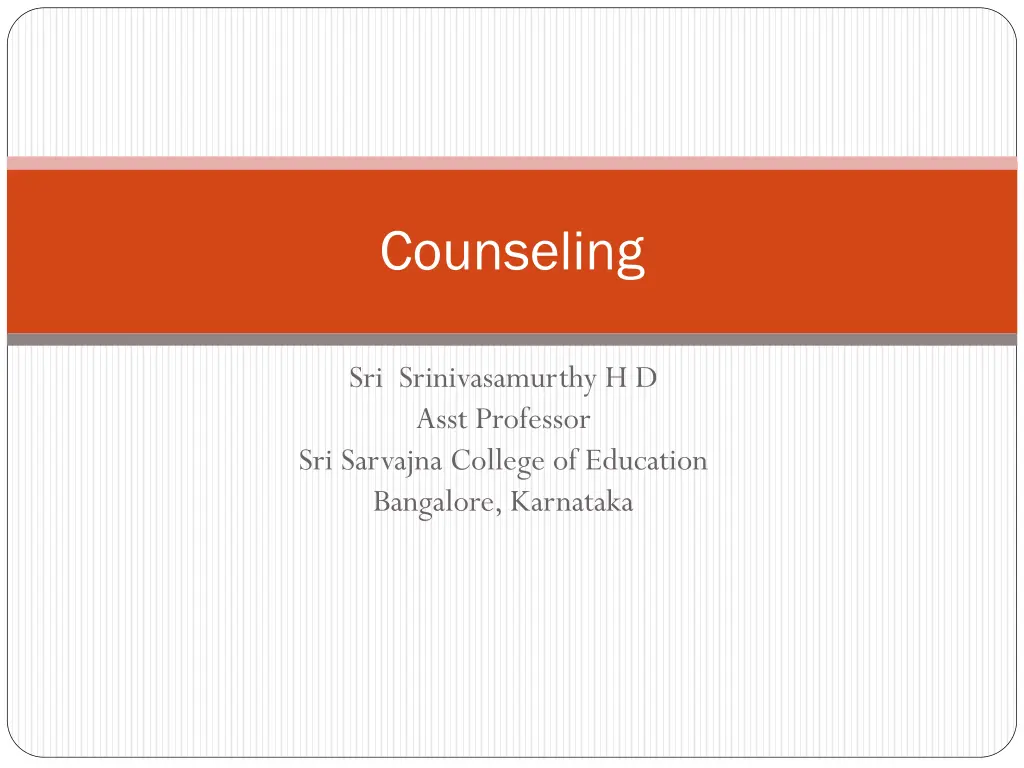
Understanding the Nature and Importance of Counseling in Education
Counseling plays a crucial role in education by helping individuals understand and solve adjustment problems, providing personalized assistance with personal, educational, and vocational issues, and facilitating positive behavior change. Various definitions and the nature of counseling highlight its significance as a conversation aimed at fostering growth and decision-making for both the counselor and the client. The interactive and problem-oriented nature of counseling emphasizes the role of the counselor in supporting the client's personality development.
Download Presentation

Please find below an Image/Link to download the presentation.
The content on the website is provided AS IS for your information and personal use only. It may not be sold, licensed, or shared on other websites without obtaining consent from the author. If you encounter any issues during the download, it is possible that the publisher has removed the file from their server.
You are allowed to download the files provided on this website for personal or commercial use, subject to the condition that they are used lawfully. All files are the property of their respective owners.
The content on the website is provided AS IS for your information and personal use only. It may not be sold, licensed, or shared on other websites without obtaining consent from the author.
E N D
Presentation Transcript
Counseling Sri Srinivasamurthy H D Asst Professor Sri Sarvajna College of Education Bangalore, Karnataka
Meaning Counseling is a relationship in which one person endeavors to help another to understand and solve his adjustment problems. Counseling is the individualized and personalized assistance with personal, educational, vocational problems in which all pertinent facts are studied and analyzed and a solution is sought, often with the assistance of specialists, school and community, resources and personal interviews in which the counselee is taught to make his own decisions.
Definitions Pepinsky and Pepinsky: Counseling is that interaction which occurs between two individuals called counselor and client, it takes place in a professional setting, and is initiated and maintained to facilitate changes in the behavior of a client . Ruth Strang: Counseling is a face to face relationship in which growth takes place in the counselor as well as the counselee. Harriman: Counseling is the psychotherapeutic relationship in which an individual receives direct help from an adviser or finds an opportunity to release negative feelings and thus clear the way for positive growth in personality.
Nature of Counseling Counseling is a conversation with some one regarding some problem. Counseling is a vital part of the entire guidance program Counseling helps the pupil in making selections and following those selections Counseling is an assistance to the persons in their behavior related problems in which their emotions and motivations are main Counseling is a face to face relationship with a person. This relationship is between a counselor and a client. Best counseling is in the form of the decision made by the counselee. Counseling is problem oriented.
Counseling involves interactions in which the counselor accepts the responsibility of positive contribution in the development of other person s personality. Counseling is based on the appropriateness of counselor s prediction. Counseling is democratic. It lays down the democratic system. The client can behave as he wishes. Counseling is possible in humorous and co-operative environment. Counseling is a professional service. Counseling is a part of the entire guidance program Counselor helps the persons in eliminating those defects or disabilities or helps in making modifications in them which obstruct their learning process.
Need of Counseling When a pupil requires not only reliable information but also an interesting interpretation of those information which can solve his personal difficulties. When a pupil needs intelligent listener who has more experience than the pupil, to whom he can recite his difficulties and through which he can seek suggestions for his working plan. When the counselor has to assess those facilities which can help in resolving the pupil s problem but the pupil does not enjoy such an access to these facilities.
When the pupil has some problem but he is unaware of that problem and his development, he is to be made aware of that problem. When the pupil is aware of the problem and difficulties created by the problem but he feels difficult to define it and to understand it. When the pupil suffers the main mal-adjustment problem or some handicap which is temporary and which needs careful long due diagnosis by an export. This can enable the client to focus on feelings, experiences or behavior, with a goal of facilitating positive change. The process that occurs when a client and counselor set aside time to explore difficulties which may include the stressful or emotional feelings of the client. Counseling is a safe place to express any feelings a person is having difficulty expressing.
Objectives of Counseling Objectives of Counseling 1) Achievement of positive mental health: An individual is said to have positive mental health when he/she is able to relate meaningfully with others and lead a fulfilling life. He/she is able to love and be loved. One purpose of counseling is to help the individual to attain this state. 2) Problem resolution: Another purpose of counseling is to help the individual to come out of a difficult situation or problem. It must be remembered that the individual is only assisted and finds his/her own solution for the problems.
3) Counseling for decision-making: Ability to make right and timely decisions is crucial for success in life. One major goal of counseling is to make the individual capable of making independent decisions. Counselor may assist the individual by providing necessary information or clarifying the counselee s goals, etc. but the decision should be taken by the counselee himself/herself. 4) Improving personal effectiveness: An effective person is one who is able to control impulses, think in creative ways and has the competence to recognize, define and solve problems. It can be seen that these different goals are not exclusive. These are all interdependent and overlapping
5) Helping to change: For development, change is always necessary. Counseling helps individuals to make changes in their attitudes, perceptions or personality. 6) Behavior modification: Another aim of counseling is to help in modifying the behavior. Removal of undesirable behavior or self-defeating behavior and learning desirable behavior is considered necessary for attaining effectiveness and good adjustment. The behaviorally oriented counselors are the chief proponents of this view.
Importance of counseling Importance of counseling Counseling is a process: it is necessary for the counselor to understand that counseling is a process and slow process Counseling is for all especially in the school situation counseling is meant for all the students and not only for those who are facing problems or other exceptional students. Counseling is based on certain fundamental assumptions Counseling is for enabling the client to do judicious thinking Better expression and management of emotions, including anger
Relief from depression, anxiety or other mental health conditions Improved problem solving and conflict resolution abilities Ability to manage stress effectively Improved communication and interpersonal skills Ability to change self defeating behavior/ habits Adjust to a new school, greater self-acceptance and self esteem. Build positive feelings forwards self and others
Develop positive feelings about work, family and society. Identify and accept their own others strengths and weakness Become responsible for their actions
Difference between Guidance and Difference between Guidance and Counseling Counseling Guidance focus is made on listening to the problem. On which assistance will be given by the expert. Counseling aims at discussing and understanding the problem, advising and empowering him to take a decision concerning his/her career or life goals in one-to-one sessions.
Difference between Guidance and Counseling Difference between Guidance and Counseling Guidance Guidance Advice or a relevant piece of information given by a superior, to resolve a problem or overcome from difficulty, is known as guidance. Client directed Locus of control moves towards client. Guidance is a comprehensive process. Counseling Counseling Counseling refers to a professional advice given by a counselor to an individual to help him in overcoming from personal or psychological problems. Counselor directed Locus of control remains with tutor. Counseling refers to a professional advice.
Guidance is preventive in nature, whereas Counseling tends to be healing, curative or remedial. Guidance assists the person in choosing the best alternative. But Counseling, tends to change the perspective, to help him get the solution by himself or herself. Guidance is a comprehensive process; that has an external approach. On the other hand, Counseling focuses on the in- depth and inward analysis of the problem, until client understands and overcome it completely.
Guidance is taken on education and career related issues whereas Counseling is taken when the problem is related to personal and socio-psychological issues. Guidance is given by a guide who can be any person superior or an expert in a particular field. As opposed to Counseling, which is provided by counselors, who possess a high level of skill and undergone through professional training. Guidance can be given to an individual or group of individuals at a time. On the contrary, Counseling is always one to one. In the Guidance, the guide takes the decision for the client. In contrast to Counseling, where the counselor empowers the client to take decisions on his own.


